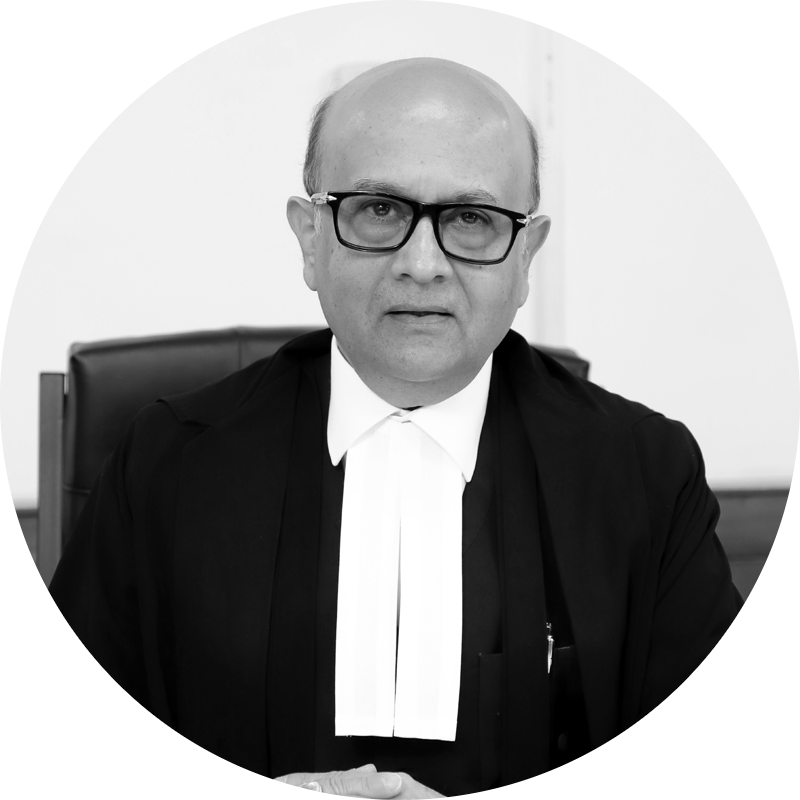Challenge to the Marital Rape Exception
Hrishikesh Sahoo v State of Karnataka
The Supreme Court will decide if the marital rape exception to Section 375 of the IPC violates the fundamental rights of married women.
Pending
Parties
Petitioner: Hrishikesh Sahoo, Union of India
Lawyers: Solicitor General Tushar Mehta, Sr Adv C.U Singh
Respondent: State of Karnataka
Lawyers: Sr Adv Karuna Nundy, Sr Adv Indira Jaising, Advocate Paras Nath Singh; Ms. Jaikriti S. Jadeja
Case Details
Case Number: SLP(Cr.) 4063-4064 of 2022
Next Hearing: October 17, 2024
Last Updated: October 16, 2024
Key Issues
Does the exception to marital rape violate a married woman’s right to equality by denying her the same legal remedies as unmarried women?
Does the exception to marital rape deny married women of the same status as men in a marriage?
Does the exception to marital rape violate a wife’s right to privacy?
Case Description
In 2017, a woman filed a complaint against her husband, Hrishikesh Sahoo, accusing him of multiple offences under the Indian Penal Code, 1860 (IPC), including rape, cruelty and making threats of causing harm. He was also accused of abusing their daughter and was charged with sexual assault under the Protection of Children from Sexual Offences Act, 2012 (POSCO).
While the case was pending at the Sessions Court, Sahoo filed a writ petition at the Karnataka High Court. He invoked the ‘marital rape exception’ in the IPC and pled for the charges against him to be dropped. This exception can be found under Section 375 of the Indian Penal Code, 1860 (IPC). Section 375 defines amounts as “rape” and under what circumstance. The provision states that any medical intervention or procedure does not amount to rape. The second exception states, “Sexual intercourse or sexual acts by a man with his own wife, the wife not being under fifteen years of age, is not rape”. This exception is termed as the ‘marital rape exception’ invoked by Sahoo.
On 23 February 2022, Justice M. Nagaprasanna rejected the petitioner’s plea. The High Court relied on the the Justice J.S. Verma Committee report (2013) which recommended deleting the marital rape exception. It held that the exception was regressive and violated the right to equality by treating the wife as subordinate to her husband. The High Court held, “no exception under law can be so absolute that it becomes a license for the commission of a crime against society”.
Sahoo filed a Special Leave Petition at the Supreme Court of India on 10 May 2022, challenging the High Court’s decision. A 3-judge Division Bench comprising former Chief Justice N.V. Ramana, and Justices Krishna Murari and Hima Kohli, passed an interim stay on the High Court Judgment on 19 July 2022. The State of Karnataka filed an affidavit expressing its support for the High Court’s decision.
Meanwhile, at the Delhi High Court, an NGO RIT Foundation, collectively with other parties, filed petitions challenging the marital rape exception. On 11 May 2022, a Bench comprising Justices Rajiv Shakdher and C. Hari Shankar delivered a split verdict in the case. Justice Shakdher stated that the exception was unconstitutional as it was discriminatory and violated a woman’s bodily autonomy and expression. On the other hand, Justice Shankar held that in the institution of marriage, sexual relations whether consensual or non-consensual, are a legitimate expectation making the exception to rape legal. Both Judges granted permission to the parties to appeal the decision at the Supreme Court.
In late 2022, Dalit activist Ms. Ruth Manorama filed a fresh petition at the Supreme Court challenging the marital rape exception. On 9 January 2023, a Bench comprising Chief Justice D.Y Chandrachud and Justice P.S Narasimha clubbed these petitions and listed them all for hearing on 21 March 21 2023.
On 21 December 2023, Parliament passed the Bharatiya Nyaya Sanhita, 2023. Section 63 of the Act which deals with the act of “rape” also includes the same marital rape exception as found under Section 375 of the IPC.
The case remained unheard for about a year until in January 2024 where it was listed for hearing before a bench of CJI Chandrachud and Justices J.B. Pardiwala and Manoj Misra.
On 4 October 2024, the Union government filed an affidavit opposing the striking down of the marital rape exception. The 49-page affidavit is said to be the first time where the Union has opposed the removal of the exception. The affidavit stated that while the husband has no right to deprive the fundamental right of a woman, describing this violation as “rape” under the “institution of marriage can be arguably considered to be excessively harsh and therefore, disproportionate.” It stated that marital rape should be made illegal and criminalised as “a woman’s consent is not obliterated by marriage…However, the consequences of such violations within marriage differ from those outside it.” However, it relied on other provisions in the IPC and the Protection of Women from Domestic Violence Act, 2005 which are equipped to “ensure serious penal consequences for such violations”.



